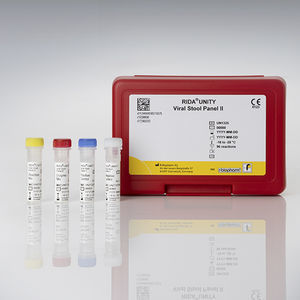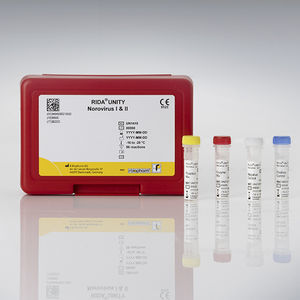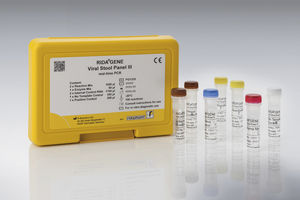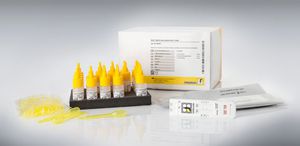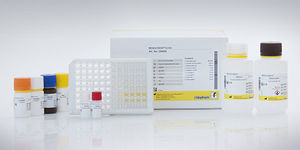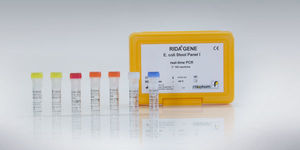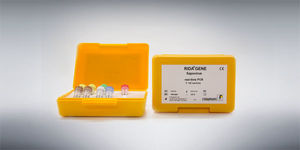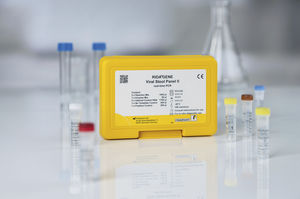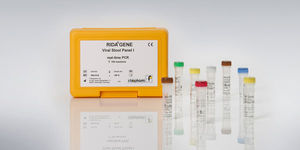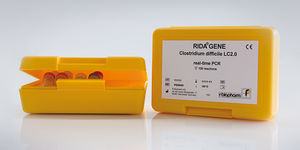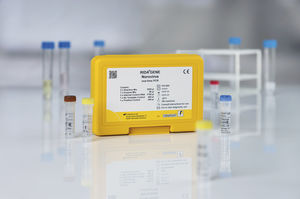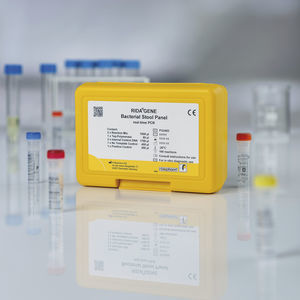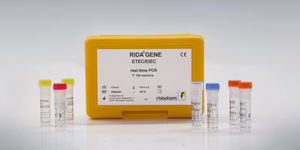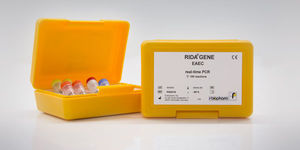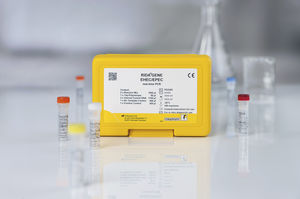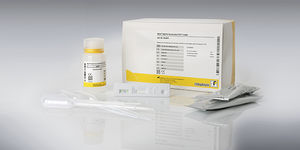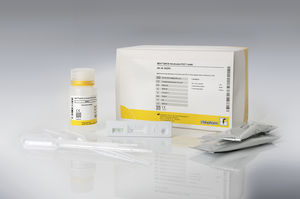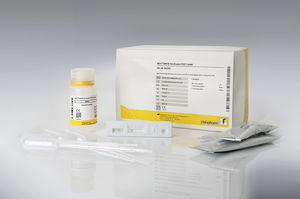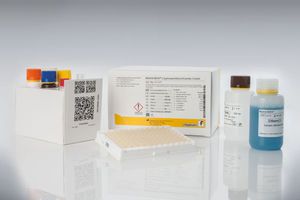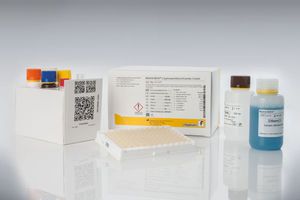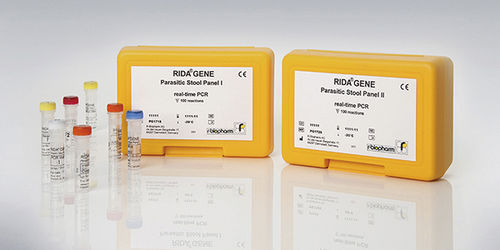
- Laboratory
- Laboratory medicine
- Lead test kit
- R-Biopharm AG
Gastrointestinal infection test kit PG1715leadGiardia lambliaCryptosporidium
Add to favorites
Compare this product
Characteristics
- Applications
- for gastrointestinal infections
- Tested parameter
- lead
- Micro-organism
- Giardia lamblia, Cryptosporidium, Entamoeba
- Sample type
- clinical, stool
- Analysis mode
- for real-time PCR
Description
For in vitro diagnostic use. RIDA®GENE Parasitic Stool Panel I is a multiplex real-time PCR assay for the direct, qualitative detection and differentiation of Giardia lamblia, Cryptosporidium spp., Entamoeba histolytica and Dientamoeba fragilis in human stool samples.
RIDA®GENE Parasitic Stool Panel I multiplex real-time PCR is intended for use as an aid in diagnosis of gastrointestinal infection caused by parasites.
General information:
Giardia lamblia, Cryptosporidium spp. and Entamoeba histolytica and Dientamoeba fragilis are the most important diarrhea-causing protozoa.
Giardia lamblia (synonym G. intestinalis or G. duodenales) is one of the most important causes of diarrhea. According to the CDC (Center for Disease Control) about 2 % of all adults and 6 – 8 % of all children in developed countries and about a third of all people in developing countries are infected with giardiasis. The CDC estimates about 77,000 cases of giardiasis each year in the U.S.. Infection with G. lamblia occurs by ingestion of cysts in contaminated food, drinking water or by faecal-oral route from person to person. The incubation time is between 1 to 3 weeks. The symptoms of giardiasis (lambliasis) are acute or chronic diarrhea, but asymptomatic cyst elimination is also occurring. Acute symptoms include watery diarrhea, loss of appetite, nausea, abdominal cramps and weight loss.
Cryptosporidium parvum is one of several species of the genus Cryptosporidium. Besides C. parvum, also C. hominis most commonly causes cryptosporidiosis in humans. However, also infections by other Cryptosporidium spp. such as C. felis, C. meleagridis, C. canis, and C. muris may lead to clinical symptoms.
Catalogs
No catalogs are available for this product.
See all of R-Biopharm AG‘s catalogsRelated Searches
- Assay kit
- Solution reagent kit
- Blood assay kit
- Serum assay kit
- Immunoassay assay kit
- Plasma assay kit
- Infectious disease detection kit
- Diagnostic reagent kit
- Rapid lateral flow test
- Immunoassay rapid diagnostic test
- Molecular test kit
- Respiratory infection test kit
- Clinical assay kit
- Infectious disease rapid diagnostic test
- Cassette assay kit
- Lateral flow test kit
- COVID-19 detection kit
- ELISA assay kit
- Real-time PCR test kit
- Quality control reagent kit
*Prices are pre-tax. They exclude delivery charges and customs duties and do not include additional charges for installation or activation options. Prices are indicative only and may vary by country, with changes to the cost of raw materials and exchange rates.


